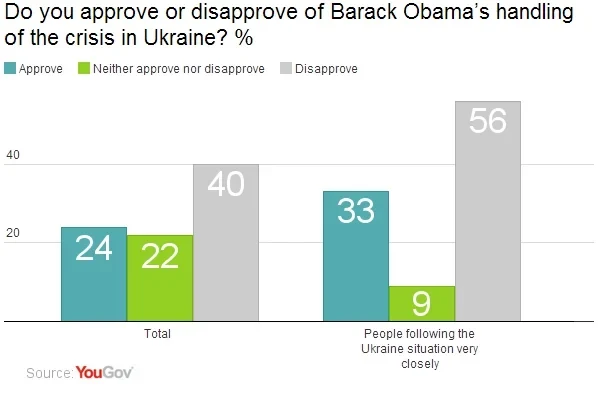Most Americans say that it's more important to maintain good relations with Russia in order to keep their cooperation on Iran, than it is to punish them for their actions in Crimea
Half the public is paying some attention to events in Ukraine, and they don’t like what they see there. Most of those in the latest Economist/YouGov Poll disapprove of Russia’s annexation of Crimea. However, what appears to prevent most Americans from wanting the U.S. to take action to punish Russia for its actions in Ukraine is the fact that most of the public prioritizes maintaining good relations with Russia over punishing Russia for its actions – and many Americans also worry about Russian President Vladimir Putin.
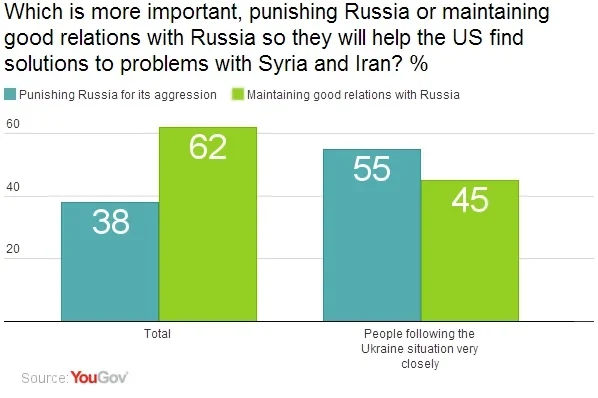
There is only one group where a majority is interested in extracting a cost from Russia for its actions in Ukraine – and that is the very small group that claims to be following events in Ukraine very closely. But only 17% say they are following events very closely, just about the same as the percentage saying that before last week’s annexation vote in Crimea (42% currently say they are following events somewhat closely). Among this group, 55% believe it is more important to punish Russia for its policy towards Ukraine.
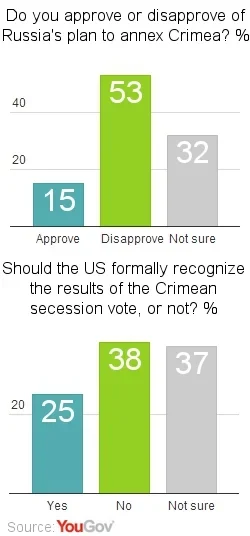
Those following events less closely – or not at all – support maintaining good relations with Russia by wide margins. 44% of men would punish Russia for aggression, compared with less than a third of women. Men are somewhat more likely than women to be paying close attention to events in Ukraine and Crimea.
Eight in ten Americans rate maintaining friendly relations with Russia as important – and a third say it is very important. That belief crosses party, regional and gender boundaries, although gender differences appear in some other questions.
Most Americans still condemn Russia’s actions – at least verbally. Only 15% approve of the annexation of Crimea, with a majority expressing disapproval. Those who aren’t following events are more hesitant to express any opinion at all. But there is some hesitancy in having the United States officially ignore that annexation and the secession vote that preceded it. As of now, 38% say the United States should not formally recognize the results of the annexations referendum. But one in four would have the American government recognize the results.
As many aren’t sure about what to do as believe there should be no recognition of the vote.
As far as the U.S. taking action in response to the Ukraine events, Americans don’t want to get involved. More than twice as many as think the U.S. should not get involved as want the United States to take action. Even those following events very closely are divided on this, with just as many opposing as favoring American involvement.
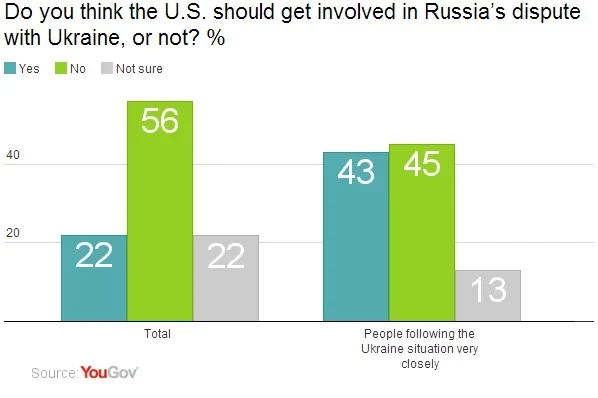
Concern about maintaining relations with Russia may in part be a concern about maintaining good relations with Russian President Vladimir Putin. Americans overwhelmingly hold an unfavorable opinion of Putin (only 15% have a favorable view, while four times as many are unfavorable), but 80% of Americans regard him as a strong leader – far higher than the 48% who express the same belief about U.S. President Barack Obama. And just about half say Putin himself poses a threat to the United States – a feeling held even more strongly by those who are most attentive to the Ukraine situation.
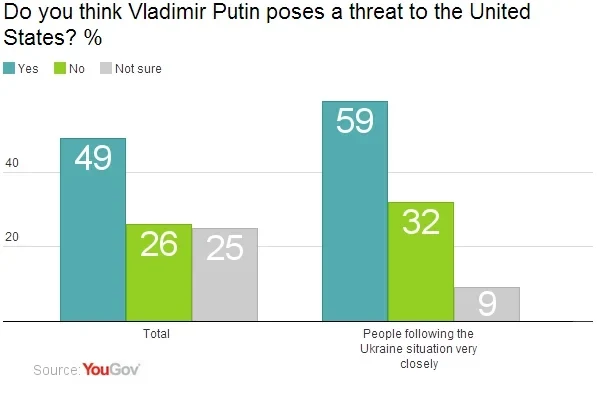
President Obama has both criticized Russia, and worked with Western Europe to provide some sort of cooperative response to the crisis – so far economic sanctions have been imposed on individuals and Russia has been suspended from the Group of 8 industrialized democracies. But the President gets little approval for his actions: less than one in four approve of the way he is handling the crisis in Ukraine, while 40% disapprove. Most of those paying close attention also disapprove.
